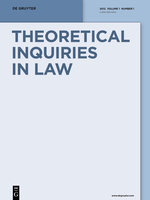The Durban Platform for Enhanced Action holds out the promise of progress towards a climate treaty that includes greenhouse gas (GHG) emissions limitations commitments by all major emitting countries, including developing as well as developed countries. But as the UNFCCC process still faces significant obstacles, it needs to be supplemented, supported and furthered by concerted domestic and international efforts to build from the bottom up, a network of more limited and targeted regulatory and financial arrangements that would promote transnational cooperation, coordination and quantitative progress in reducing net GHG emissions.
This paper focuses on specific transnational arrangements that are regulatory in character, involving standards, protocols, and other norms for products and production and process methods, for investments, financing, and trade, for generating and transmitting information, and other activities relevant to achieving GHG reductions. These transnational programs would focus to a considerable extent on achieving economic or environmental objectives other than climate protection, but in doing so would stimulate behavioral changes and instigate institutional arrangements that produce GHG reductions as a co-benefit. These regimes would involve not only major emitting countries but also firms, sub-national jurisdictions, civil society organizations (CSOs) and international organizations. These latter actors are not part of the UNFCCC process (other than as observers), but often already have significant economic and other non-climate incentives to undertake actions that will reduce GHG, or would readily respond to the deployment of such incentives. The strategy is to complement the universalist state-centered UNFCC process with a suite of concerted initiatives for regulatory and financial cooperation and coordination in specific fields involving non-state as well as state actors, focused on the most promising targets of opportunity for near-term emissions reductions.
